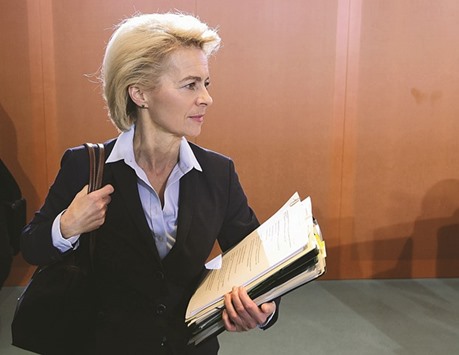Trump sparked concern among the North Atlantic Treaty Organisation (Nato) and EU foreign ministers on Monday when he said that Nato was obsolete and criticised the alliance members that failed to meet the alliance’s target of spending 2% of national output on defence.
A key Trump adviser said on Tuesday that only parts of Nato were obsolete, while Nikki Haley, his nominee for ambassador to the United Nations, said Nato was an important alliance and she did not believe it was obsolete.
“We want the Americans to be clear, ‘What is your agenda’,” von der Leyen told German broadcaster NTV. “The most important thing ... is reliability.”
Von der Leyen said Germany was boosting military spending by nearly €2bn in 2017 to €37bn, or 1.22% of gross domestic product (GDP).
It is due to reach €39.2bn by 2020.
“We’re moving in the right direction, but we can’t do it in one year,” she told NTV.
German Chancellor Angela Merkel said in November that she did not expect Germany to meet its Nato defence spending target in the near future.
Von der Leyen welcomed support for Nato voiced by Trump’s defence secretary nominee, James Mattis, during his Senate confirmation hearing.
“He’s very reliable,” she said, adding that the Trump administration still had to resolve some issues internally.
Nato Secretary General Jens Stoltenberg told German newspaper Die Welt in an interview published yesterday that Trump had assured him in a telephone call that the United States continued “to feel committed to Nato”.
“I am absolutely certain the United States will continue to fully live up to its security guarantees for Nato,” he said.
Asked about Trump’s criticism that Nato had failed to prevent terror attacks in Europe, Stoltenberg said the alliance was already engaged in counter-terrorism efforts and talks were under way about how to expand that work.
A defence ministry spokesman said the German military’s spending on weapons, munitions and other equipment rose by nearly 11% in 2016 to €5.1bn and would increase even more sharply to $6bn this year.
Procurement spending would account for 16.2% of the overall military budget in 2017, up from 14.5% in 2016 and 13.5% in 2015, the spokesman said.

